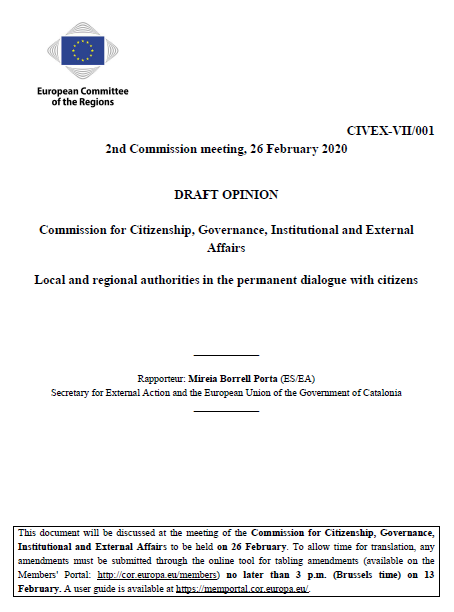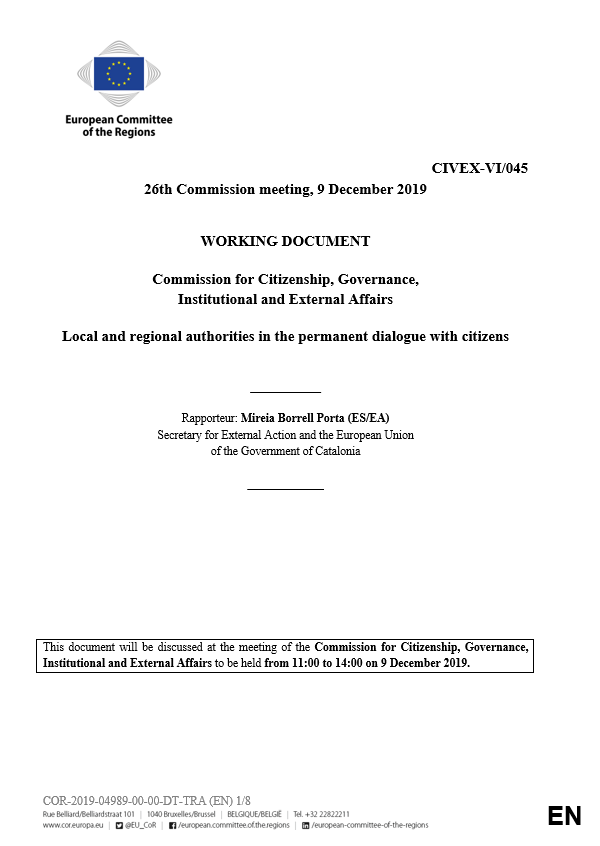On 9 December 2019, the Catalan Government presented a working document at the 26th CIVEX commission meeting of the European Committee of the Regions.
The aim of the working document was to spark a debate for an upcoming Opinion on the “Local and Regional Authorities in the permanent dialogue with citizens”. The working document had the following scheme:
- Bridging the gap between what leaders see vs. what citizens see
- Lack of identification of EU issues with daily-life issues
- An ecosystem of infrastructures of participation
- Engaged citizens in a technopolitical paradigm
- Transforming the administration(s)
Now, a draft for that opinion has just been published for its discussion during the 2nd CIVEX commission meeting. As it happened with the working document, my colleague Mireia Borrell, Secretary for External Action and the European Union of the Government of Catalonia, acts as a rapporteur, while I am appointed as an expert to draft the opinion.
A preliminary abstract of that opinion is as follow:
- Proposes the setting-up of a Network of Open Participatory Governments, made up by regions and cities, with the purpose to translate upwards and downwards diagnoses, perceptions and proposals on European issues and decision-making;
- Proposes that the Committee of the Regions designs, implements and coordinates such a network in collaboration with all other European institutions;
- Expects that the Network of Open Participatory Governments can succeed in granularizing European policies and principles and breaking them into smaller, more understandable bits, thus contributing to bring them closer to the citizen, so that they can better draw the line that weaves macro-, meso- and micro-levels of policies;
- Suggests that the Network of Open Participatory Governments is piloted during the Conference on the Future of Europe to enlarge, extend, intensify and enhance the dialogue between European institutions and citizens through local and regional authorities, contributing to translate upwards and downwards the deliberations taking place at different levels;
- Wants to raise awareness on the fact that more and more citizens are moving towards a new paradigm of political engagement – technopolitics – which is characterized by horizontal relationships, distributed power and networks of collaboration, enabled and enhanced by digital technologies and open data, taking place in informal spaces and out of institutional circuits;
- Believes that there are new ways of listening to citizens, new ways of enabling citizens to engage and participate in policy-making, and that a new ecosystem to coordinate the proposals of citizens and the responses of a multi-level administration undoubtedly require a thorough transformation of the culture of administration(s).
Our proposal of the functioning of the Network of Open Participatory Governments is summarized in the following figure:
The full text that will be discussed in the next CIVEX commission can be downloaded below:
Peña-López, I. (2020). Local and Regional Authorities in the permanent dialogue with citizens. Draft Opinion. Brussels: European Committee of the Regions.




